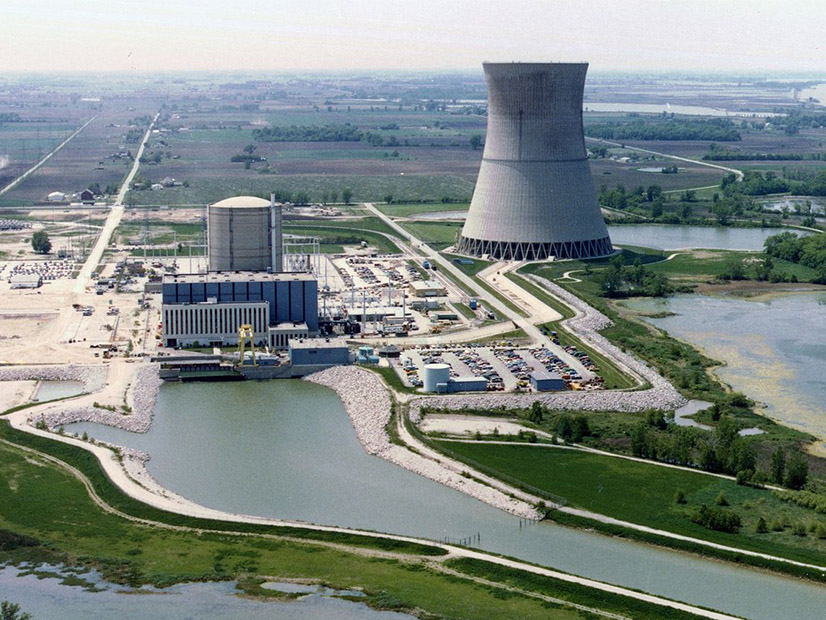The Nuclear Regulatory Commission is preparing to cite Energy Harbor, the owner of the Davis-Bessie nuclear power plant in Ohio, for failure to develop a preventative maintenance schedule for electric switches installed in 2006.
The field flash selector switches (FFSS) enable the plant’s two emergency diesel generators (EDGs) to actually begin to produce electricity once their turbines are spinning.
A team of NRC inspectors earlier this fall determined that the switches had not been inspected in the 15 years since installation and that “degradation” of electrical contact surfaces had occurred.
Each EDG is designed to power the plant’s complex safety systems, including the emergency cooling equipment, if the reactor shuts down and the facility is also cut off from grid power. Their functioning in an emergency shutdown is crucial. They failed to generate power during five routine periodic tests between 2019 and 2021, the company reported.
The EDG problems and a July incident that began with the plant’s main steam generator, causing the reactor to automatically and safely switch off, prompted NRC to send a special inspection team to the plant, located about 30 miles east of Toledo on Lake Erie.
Davis-Bessie’s own engineers had determined that two other switches were not designed for the plant’s EDG system, and they were replaced. But the plant’s management disagreed with NRC’s finding that its failure to develop an inspection of the FFSS had caused the problem.
“After the special inspection concluded and during the development of the preliminary significance determination, you provided the perspective, based on a vendor analysis, that the EDG FFSS failure during the fast-start test was most likely the result of foreign material between the switch electrical contacts, as evidenced by the presence of nickel on the contact surface,” the commission noted in a letter sent to Davis-Besse managers Dec. 16 and released to the public Monday.
“You concluded that the failure was not caused by the lack of inspection and long-term switch electrical contact degradation. The NRC has preliminarily determined this vendor analysis does not rule out contact degradation due to lack of inspection as a significant contributing cause of the failure,” the commission countered.
“There is sufficient operating experience on electrical contact failure due to contamination to reasonably consider this degradation mechanism to be credible. Therefore, we continued to conduct our significance determination with this assumption.”
If NRC does cite the company as it appears ready to do, the citation would remain on the plant’s safety record while the commission conducts additional on-site inspections. The commission is attempting to assess the risk the problem with the switches posed.
Energy Harbor did not respond to a request for comment.



